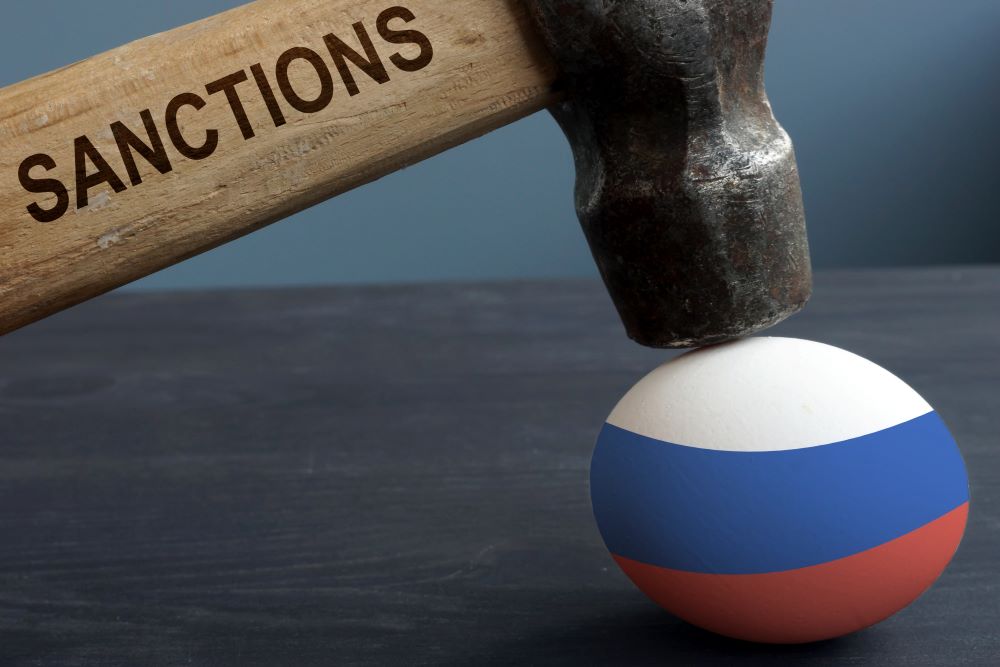
A US-backed plan to ban all exports to Russia from G7 countries has been branded “unworkable” by other nations within the alliance, as both Washington and Brussels plan further sanctions.
The FT reports that diplomats from the EU and Japan have said that the plan remains unfeasible during preparatory meetings for a summit, due to take place next month.
Last week, Bloomberg reported that G7 officials were in preliminary discussions over the Americans’ proposal to ban almost all exports to Russia, representing a significant increase in economic pressure.
It is likely that medicines and agricultural products would be exempt from this ban, as is currently the case.
Dmitry Medvedev, deputy chair of Russia’s Security Council and former prime minister under Russian president Vladmir Putin, has threatened to pull out of the Black Sea initiative, which guarantees the safe passage of grain from Ukrainian ports, in response.
Loopholes
While the true impact of sanctions on the Russian economy and war effort is still unclear, there are numerous complaints from the US government and beyond that there are too many loopholes in the existing framework.
US Treasury undersecretary for terrorism and financial intelligence, Brian Nelsen, recently shared some of the methods used by the Russian government to evade sanctions with European allies during a tour of the continent, according to a press release.
EU sanctions
The EU is planning their next package of sanctions, although this is expected to be adopted in late May.
Poland’s foreign minister Zbigniew Rau told Polish state-run news PAP that the measures were still in the “discussion phase”.
The European Commission is expected to propose a ban on goods transiting through the continent to Russia, including numerous technologies and vehicles.
Another point of emphasis is reducing the flow of goods via third party states, as several Asian nations have seen increased trade flows since the imposition of sanctions, with many diplomats alleging that goods are then re-exported to Russia.
Asian focus
According to Politico, both the EU’s sanctions plan and its wider foreign policy depends partly on Kazakhstan.
The EU is reported to be keen to ensure there is no “circumvention of international sanctions” in Kazakhstan, which is also viewed by Brussels as an important part of its strategy on China.
China has been embroiled in a diplomatic row of its own after Lu Shaye, China’s ambassador to France, appeared to question the legitimacy of several post-Soviet states.
‘Warrior wolf’ diplomacy
“In international law, even these ex-Soviet Union countries do not have the status, the effective [status] in international law, because there is no international agreement to materialize their status as a sovereign country,” he said in an interview.
The ambassador, who has in the past been an advocate of an aggressive “warrior-wolf” form of diplomacy, did not cite any specific legal basis for these remarks.
Estonia, Lithuania and Latvia, all former members of the USSR, reacted furiously to the comments, with Lithuanian foreign minister, Gabrielius Landsbergis, saying the attitude was why “the Baltic States don’t trust China to broker peace in Ukraine “.
The Guardian reports that Beijing sought to walk-back Shaye’s controversial comments.
The Chinese embassy in Paris later released a statement saying that these were “not a policy declaration … but the expression of personal viewpoints.”



